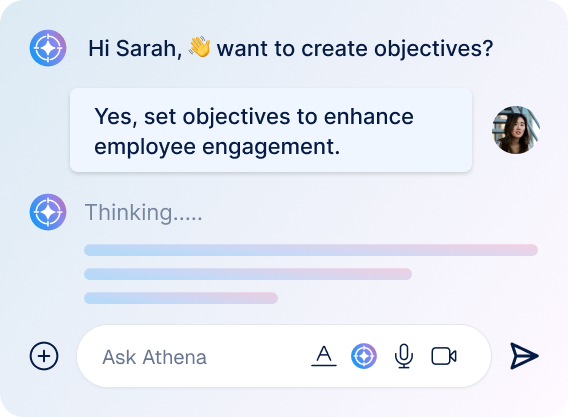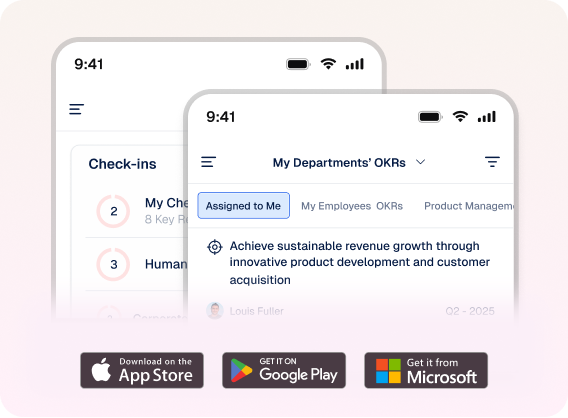If you’ve been looking into project management solutions that will be right for you and your team, then the chances are high you’ve come across agile project management. Out of the slew of methodologies available, what makes an agile method the top choice for most project managers?
Agility is the ability to adapt and respond to change… agile organizations view change as an opportunity, not a threat.
In this article, you’ll learn what exactly agile project management is, its core principles and values, and what the benefits of implementing this methodology are. By the end, you’ll be able to decide if agile project management is the right solution for you. Let’s get started.
What is Agile Project Management?
As the name implies, agile project management is a methodology that takes an iterative approach to make large projects more manageable. It works by breaking the entire project down into smaller chunks and working on each in parts so that changes and feedback can be implemented quickly and efficiently.
By taking advantage of the agile style, teams and employees are more productive. They complete goals faster. And it can optimize your overall workflow for better results.
Originally developed to help streamline software development, there are many variations of agile project management that can be applied across various fields and industries. However, they all share and rely on 12 principles and 4 core values.
Now that you have a clear definition of agile project management, let’s go over the 12 principles that are at the core of this kind of methodology.
The 12 Principles of Agile Management
As mentioned before, agile project management was born from the needs of software developers. The resource site Agile Alliance lists out their Agile Manifesto which lays out these 12 principles. Also, you can swap out words like “software” for “product” or “service” to make it fit more with your field.
1. Customer satisfaction comes first, meaning your top priority should be providing value to the end-user.
2. Don’t be afraid of change, even late in the game.
3. Deliver projects in a timely manner and give an honest estimation of the timeline to any stakeholders to avoid conflict.
4. Team members need to be in contact daily while working on their project.
5. Choose highly motivated and productive employees for your team. This helps cultivate a high-performance work culture in your organization.
6. Use face-to-face communication or video calls when aligning your teams and sharing vital information. This ensures that emails or chat messages don’t get lost in the shuffle.
7. The true measure of progress is the final product.
8. Agile Project Management is all about sustainability. Everyone on the team should maintain a consistent pace.
9. Agility is possible when you have a strong foundation of technical excellence and a smart design.
10. Don’t overcomplicate processes– always remember that your goal is to get the most output possible for your input.
11. Remember that accountable, responsible teams perform better than micro-managed employees.
12. Your team needs to regularly take a step back and reflect on the current situation, then adjust accordingly.
No matter which agile methodology you choose, these principles can help guide your decision-making process and project development.
OKRs is a goal-setting framework that uses these core principles to help teams achieve more, more efficiently. To learn more, get started on our OKR management software free today!
The 4 Values at the Core of Agile Project Management
The 12 principles listed above act as the foundation for agile project management. But at the heart of all the agile methodologies are the 4 following values:
- People and how they use the product comes before the company’s process and tools
- A working product comes before comprehensive documentation
- Collaborating with the customer comes before negotiating contracts
- Responding to current changes comes before following past plans
What you see is that this is a human-centric approach that focuses on collaboration within the team and with customers. At the end of the day, the goal is to develop products and services that deliver valuable results to the world and to people.
What Are The Major Benefits and Advantages of Agile Project Management?
The idea of agile project management goes back to the ‘90s. The Agile Manifesto cited in this article was written around 2001, articulating the key values and principles of the agile project management methodologies that would lead innovative companies in the 21st century.
It’s been utilized by some of the biggest names in tech and other industries. Apple, Microsoft, and P&G all make use of agile project management in their workflow. Agile systems such as OKRs have been proven to help start-ups scale quickly and effectively; however, agile project management can help companies in any industry and at any maturity level. Here are some of the benefits that proponents of the methodology highlight:
1. It Makes Your Team More Flexible and Adaptable
With its iterative approach to product or business development, an agile project management system lets teams quickly adapt to changes and problems as they arise. You can gain valuable insights during the development process and implement the information learned on the go. It also lowers the risks of major issues derailing the project late in the game.
2. You Create Better Product/Service for the Customer
As the 4 values and 12 agile management principles point to, agile project management is mostly people-focused. Since you’re collaborating with your team and opening a feedback loop at every stage of development, you can quickly and effectively make the changes team members suggest based on customer reviews. In turn, the customer gets a better end product. That’s a win-win for everyone involved.
3. Staff and Employees Are Happier With More Freedom
The agile workflow creates an environment that promotes freedom, creativity, and autonomy. Your team can (and are encouraged to) share new ideas and come up with innovative solutions to complex problems. This demonstrates how vital and important they are to the development process, and lets them know their contributions are valued, increasing their engagement and job satisfaction.
Want to learn more about Profit.co’s agile OKR software? Book a free demo with our OKR experts today!
Ready to start your OKR Journey for FREE?
Final Say
Now you have a clear idea of what agile project management is and if it could be right for you. This introduction to the principles of agile project management and development is a great starting point. Now, you can figure out which agile project management method will work best for your organization and your team.





